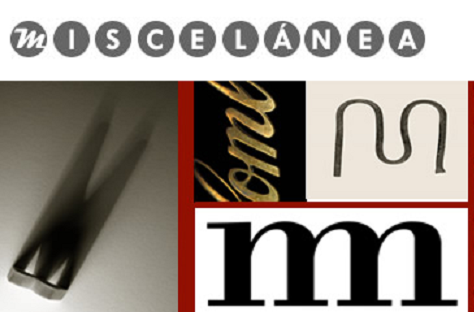J.M. Coetzee’s Diary of a Bad Year: Ethical and Novelistic Awareness
DOI:
https://doi.org/10.26754/ojs_misc/mj.20099661Palabras clave:
Coetzee, Literatura, Diario, Ética, Liminalidad, EnvejecimientoResumen
En Diario de un mal año, Coetzee retoma muchos de los temas recurrentes en su obra anterior. Una vez más Coetzee se ocupa de la autonomía de la novela y de la responsabilidad ética del escritor. Desde su posición independiente, cuestiona y explora la naturaleza de la novela y el oficio del novelista. Este artículo trata de dilucidar la manera en que Coetzee, en Diario de un mal año, establece correspondencias entre el macro y el microcosmos. En el ámbito global y desde una postura crítica, Coetzee señala errores del mundo de hoy. Dentro del microcosmos, el autor explora la parte más profunda y dramática de la naturaleza humana, a través de las preguntas, los sentimientos y las necesidades del protagonista, un escritor de setenta y dos años que va descubriendo sus crecientes limitaciones. Este artículo estudia la manera en que los tres textos que componen la obra, visualmente separados en la página, convergen hacia el final de la misma y alcanzan unidad en el desenlace de la historia. Además, propone que con su experimentación literaria Coetzee amplía el alcance de la Novela.
Descargas
Citas
ABANI, Chris. 2004. GraceLand. New York: Picador.
ATTWELL, David 2006. “The Life and Times of Elizabeth Costello. J.M. Coetzee and the Public Sphere”. In Jane Poyner. (ed.) J.M. Coetzee and the Idea of the Public Intellectual. Athens: Ohio U.P.: 25–41.
AUSTER, Paul. 2008. Travels in the Scriptorium. New York: Picador.
BEGAM, Richard. 1992. ‘An Interview with J.M. Coetzee’. Contemporary Literature 33 (3): 419–431.
CANEPARI-LABIB, Michela. 2005. Old Myths–Modern Empire: Power, Language and Identity in J.M. Coetzee’s Work. Oxford: Peter Lang.
COETZEE, J.M. 1977. In the Heart of the Country. Penguin Books.
—. 1988. “The Novel Today”. Upstream. A Magazine of the Arts. 6 (1): 2–5.
—. 1994. The Master of Petersburg. Penguin Books.
—. 1998. Age of Iron. London: Penguin.
—. 2003. Elizabeth Costello: Eight Lessons. London: Secker & Warburg.
—. 2002. Youth. London: Vintage.
—. 2007. Diary of a Bad Year. New York: Viking.
CRAVEN, Peter. 2007. Review. Diary of a Bad Year. The Age. http://www.theage.com.au/news/book-reviews/diary-of-a-bad-year/2007/08/28/1188067098779.html?page=fullpage (Accessed 20 September, 2008).
DEB, Siddhartha. 2008. “Señor Year”. Review. Book Forum. http://www.bookforum.com/inprint/014_04/1385 (Accessed 22 November, 2008).
DRAGUNOIU, Dana. 2006. “J.M. Coetzee’s Life & Times of Michael K and the Thin Theory of the
Good”. Journal of Commonwealth Literature. 4 (1): 69–92.
EDER, Richard. 2008. “A Writer, a Muse, Their Laundry”. Review. Diary of a Bad Year. The New York Times. http://www.nytimes.com/2008/01/01/books/01eder.html (Accessed 23 February, 2008).
GEE, Maggie. 2007. “Diary of a Bad Year. Review”. Times Online. From The Sunday Times. http://entertainment.timesonline.co.uk/tol/arts_and_entertainment/books/fiction/article2348797.ece (Accessed 23 February, 2008).
HARRISON, Kathryn. 2007. “Strong Opinions”. Review. Diary of a Bad Year, The New York Times Book Reviews. http://www.nytimes.com/2007/12/30/books/review/Harrison-t.html?_r=1 (Accessed 20 May, 2008).
KIRSCH, Adam. 2007. “The Coldest Critic”. Review. Inner Workings, Arts and Letters. The Objective Standard. http://www.nysun.com/article/58196 (Accessed 15 September, 2008).
MCDONALD, Peter D. 2006. “The Writer, the Critic, and the Censor: J.M. Coetzee and the Question of Literature”. J.M. Coetzee and the Idea of the Public Intellectual. Athens: Ohio U.P. 42–82.
MISHRA, Pankaj. 2005. “The Uncertainty Principle”. The Nation. www.thenation.com/docprint.mhtml?i=20051114&s=mishra (Accessed 8 March, 2008).
POYNER, Jane. 2006. J.M. Coetzee and the Idea of the Public Intellectual. Athens: Ohio U.P.
—. 2006. “J.M. Coetzee in Conversation with Jane Poyner”. J.M. Coetzee and the Idea of the Public Intellectual. Athens: Ohio U.P.: 21–24.
RUTHERFORD, Jennifer. 2008. “Melancholy and The Magpie: Coetzee’s Amoro-Dolorous Duo”.
Kunapipi, XXX (2): 171–183.
RUSHDIE, Salman.1981. Midnight’s Children. London: Picador.
—. 1991. Imaginary Homelands. Essays and Criticism 1981-1991. London: Granta Books. TONKIN, Boyd. 2007. ‘Beyond the Prophet Motive’. Review. Diary of a Bad Year, by J.M. Coetzee. The Independent. http://www.independent.co.uk/arts-entertainment/books/reviews/diary-of-a-bad-year-by-jm-coetzee-463586.html (Accessed 23 February, 2008).
WORSFOLD, Brian. 2008. “Antes de que sea demasiado tarde. Apuntes sobre el Zeitgeist personal de J.M. Coetzee en Diario de un mal año”. J.M. Coetzee. Fernando Galván (ed.) La
Página 71/72 (Año XX, núms.1-2): 167–184.
Descargas
Publicado
Cómo citar
Número
Sección
Licencia

Esta obra está bajo una licencia internacional Creative Commons Atribución-NoComercial 4.0.


